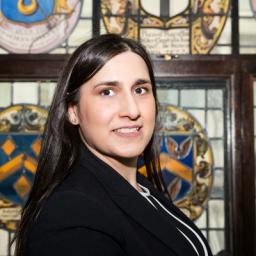Baroness Deech hits back after Moses LJ savages QASA

By Sophie Khan
Too expensive to recruit 'an army of assessors'
Baroness Deech, chair of the BSB, has mounted a strong defence of the QASA scheme, after it was savaged by Lord Justice Moses.
Moses LJ told barristers last week that 'the need to be marked, to move up a level or maintain one's grade' was 'deeply inimical' to the proper relationship between advocate and judge and the trust clients had in that relationship.
'There is, I suggest, cause for a profound unease in the notion that, in the very trial which you face as an accused, your advocate has asked to be assessed,' he said.
'What effect is that going to have on your brief? Is she on your side or just trying to mollify the judge? Surely the last thing we want is defensive advocacy.
'The accused must believe that his brief will tell the judge to go to the devil, if that is what his case demands.'
Delivering the Ebsworth lecture at Middle Temple, Moses LJ suggested the creation of 'academies of advocacy' in which the Inns of Court took the lead in providing compulsory training.
He said that if the Inns of Court had the skills and the facilities to teach the beginner, 'those should also be deployed to all those advocates whom the public and the BSB demand should maintain their expertise and improve'.
Baroness Deech said she believed it was important that advocates were assessed in real-life situations in the same way as other professionals, such as teachers.
'The only alternative to achieve this same level of assessment is to recruit an army of independent assessors, who would need to have experience of performing and assessing advocacy, to be deployed throughout the country to assess advocates in court.
'This would make the scheme prohibitively expensive, bearing in mind the cost of the scheme must be borne by advocates themselves.'
Deech said assessment centres could 'never wholly replicate the spontaneous, real-life situation of the courtroom' where advocates work.
She said the BSB had conducted a wide consultation on the scheme over the last two years and the feedback received from the judiciary was positive.
Deech said a 'single negative evaluation' would not determine an advocate's future and the scheme had been developed to show 'patterns of competence' based on multiple evaluations over a period of time.
'There is therefore no incentive to 'please a judge'. Any attempts to do so will be treated seriously as they may show a breach of very serious professional obligations.
'Advocates have a professional obligation to follow their client's instructions and to act in the best interests of their client, which sometimes means standing up to a judge firmly and fearlessly.'
Sophie Khan, solicitor advocate at GT Stewart and a committee member of the Law Society's new advocacy section, said it was 'refreshing' that a judge had finally spoken out about QASA.
'Judges are there to judge the case,' Khan said. 'They are not meant to be doing the dual job of judging the advocate.
'This is something we should be opposing because it will have a massive impact on the way advocates carry out their work.
'The best interests of the client should come first. I think it is very worrying to put pressure on advocates in this way.'

